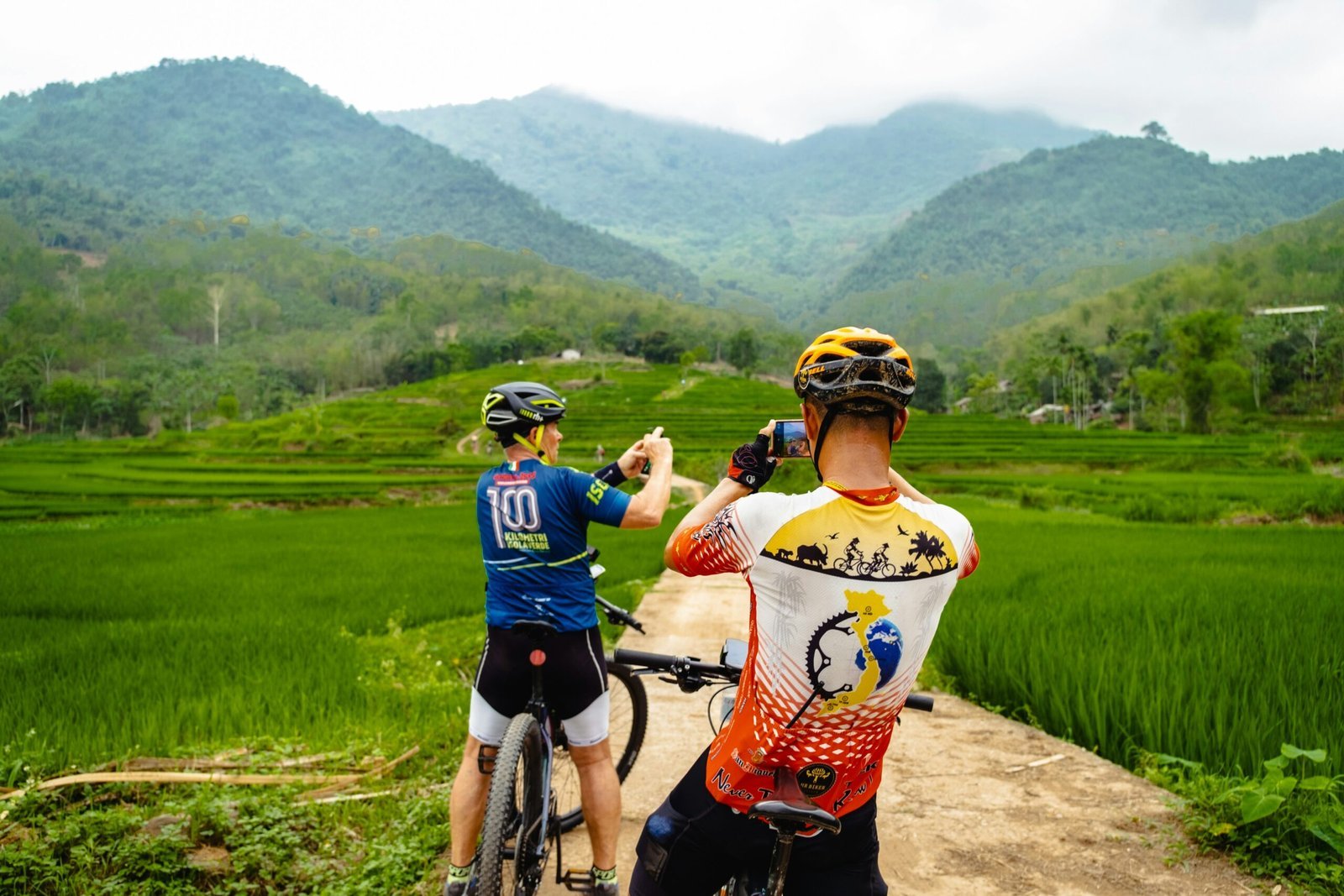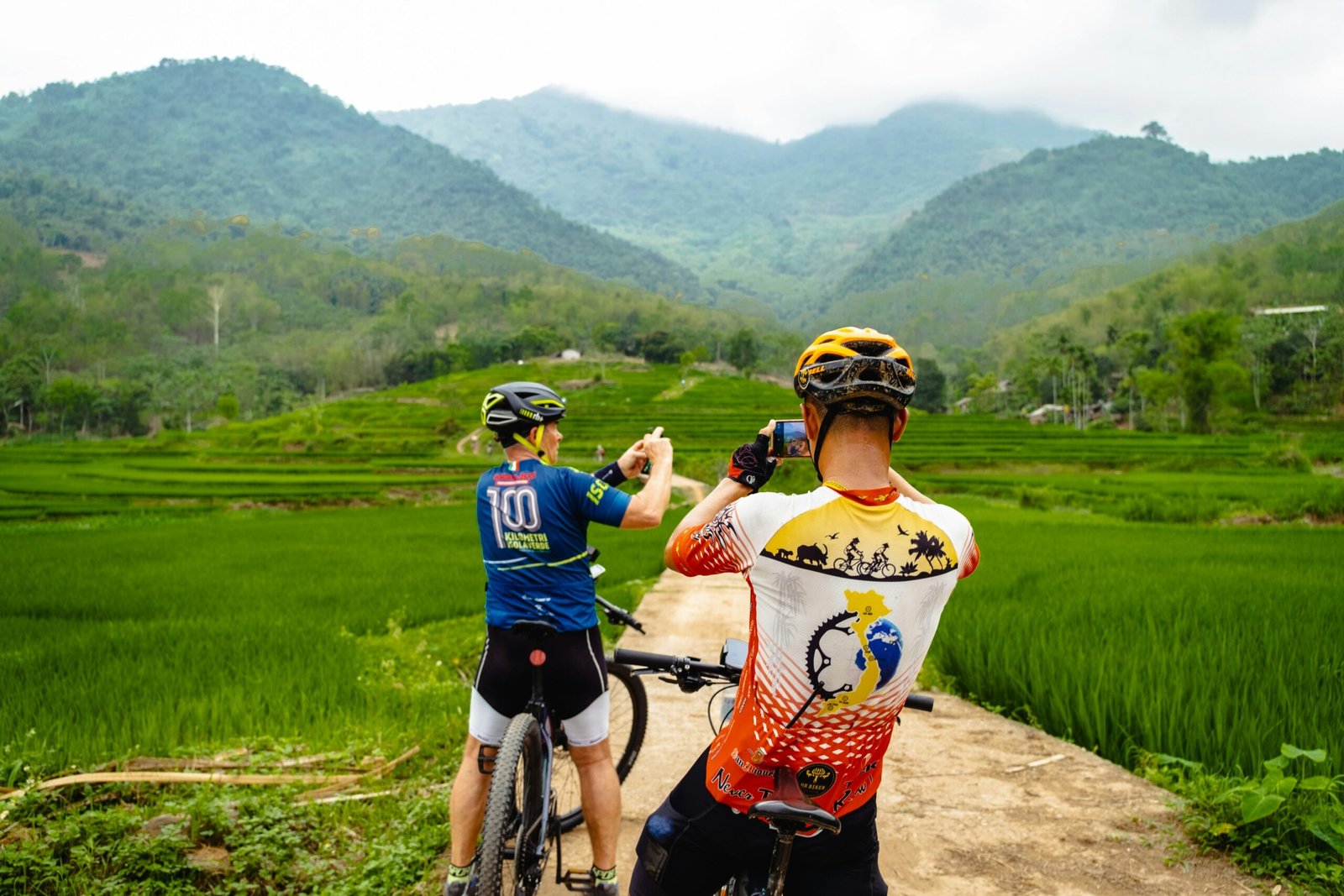
Introduction to East Timor and Its Rich Heritage
East Timor, officially known as Timor-Leste, is a small yet captivating nation situated in Southeast Asia. It lies to the north of Australia and is part of the Timor Island, sharing the landmass with Indonesia. Despite its modest size, East Timor is endowed with an incredibly rich cultural tapestry, a beautiful landscape, and a compelling history that vividly reflects the resilience and vibrancy of its people. The country’s recent emergence from political turmoil has further solidified its identity, catalyzing a growing interest in its local life and traditions.
The diverse heritage of East Timor is palpable in every aspect of daily life. Visitors might find themselves enchanted by the plethora of local languages, with Tetum and Portuguese recognized as the official tongues, serving as conduits for the rich oral traditions and folklore that pervade the society. The variety of ethnic groups residing in East Timor contributes to a colorful cultural mosaic, celebrating festivals, music, dance, and craftsmanship that have been preserved for generations. These elements combine to create a unique identity that distinguishes East Timor from its neighbors.
Equally significant are the stunning natural landscapes that frame the rural communities of East Timor. From lush mountains and pristine beaches to vibrant coral reefs, the country boasts a variety of ecosystems that are as diverse as its inhabitants. The rural villages nestled in these locations offer an authentic glimpse into the local lifestyle, where agriculture, traditional practices, and familial bonds play pivotal roles. Engaging in a village cycling tour provides travelers not only an exhilarating means to explore these beautiful terrains but also an opportunity to connect with the local communities, fostering a deeper appreciation of their traditions and way of life, and ultimately enriching their travel experience.
Planning Your Village Cycling Tour
Embarking on a village cycling tour in East Timor requires thoughtful planning to enhance your experience and ensure safety. The best time to visit is during the dry season, typically from May to October, when the weather conditions are most favorable for outdoor activities. This period not only offers pleasant temperatures but also allows for better accessibility to rural areas, making it ideal for a cycling adventure.
Preparation is key to enjoying your village cycling tour. To this end, investing in quality cycling gear is essential. A well-fitted helmet, padded cycling shorts, and a comfortable, breathable jersey will significantly improve your riding experience. Additionally, a sturdy mountain bike is recommended due to the varied terrains you may encounter in rural East Timor, where unpaved roads and steep hills are common. Ensure that your bike is in good condition, checking the brakes, tires, and gears before setting off.
Identifying recommended routes is also an important step in planning your cycling tour. Many local operators offer specific cycling itineraries that showcase the natural beauty and cultural heritage of the villages. These routes often lead you through market towns and stunning landscapes, allowing you to appreciate the rich biodiversity and vibrant communities. It’s advisable to choose routes that match your fitness level, considering the varying degrees of difficulty.
Engaging with local guides can greatly enhance your tour experience. Not only do they provide invaluable insights into the local culture and history, but they also help navigate the terrain and ensure a safe journey. You can find reputable guides through local tour operators or by seeking recommendations from fellow travelers. Their expertise can make your village cycling tour a more immersive and informative adventure.
A Glimpse into Daily Life in East Timorese Villages
East Timorese villages offer a fascinating insight into the vibrant daily lives of their inhabitants, characterized by traditional practices that have been passed down through generations. The rhythm of village life is often set by agricultural cycles, with many locals engaging in subsistence farming. Corn, rice, and cassava are staple crops that form the backbone of food production, while gardens filled with vegetables and fruits supplement the family’s diet. This reliance on agriculture not only nourishes the community but also shapes their identity and fosters a strong connection to the land.
In addition to farming, craftsmanship plays a crucial role in the cultural fabric of East Timor. Villagers often engage in traditional weaving, pottery, and woodwork, creating beautiful artisanal products that reflect their heritage. These crafts are not merely artistic expressions; they also serve practical purposes and are often used in daily life or during ceremonial events. Tourists participating in cycling tours can observe the intricate processes involved in crafting these items, providing a unique opportunity to appreciate the skills and dedication of local artisans.
Festivals and communal celebrations further enrich the village experience. Events, such as harvest festivals, are occasions for bringing the community together, fostering a spirit of unity among the villagers. Music, dance, and traditional rituals are integral parts of these celebrations, allowing visitors to witness the joyous atmosphere firsthand. Engaging with the locals during such festivities grants tourists a deeper understanding of their customs and traditions, enabling a more authentic experience of East Timor’s cultural landscape.
Understanding the daily routines and lifestyles in East Timorese villages enhances the overall experience for those on cycling tours. As tourists interact with the local community, they gain insights into the authenticity of village life and the enduring spirit of its people.
Scenic Routes: Cycling Through Breathtaking Landscapes
East Timor, a country steeped in natural beauty, offers a plethora of scenic routes that vividly showcase its diverse landscapes. As cyclists traverse these paths, they are treated to an array of breathtaking views that range from serene coastal stretches to rugged mountainous trails. Each route presents an opportunity to embrace the enchanting surroundings, making the cycling experience not just about physical activity, but also a journey of connection with nature.
One of the most captivating routes takes cyclists along the pristine coastline, where the gentle sound of waves crashing against the shore accompanies every pedal stroke. This coastal path not only provides stunning vistas of the Indian Ocean but also unveils hidden gems like secluded beaches adorned with white sands and crystal-clear waters. These picturesque spots are perfect for a brief respite, allowing cyclists to savor the beauty of their surroundings and perhaps indulge in a refreshing swim.
Transitioning from the coast to the interior, the cycling routes lead through lush rice fields that paint the landscape in vivid greens. The sight of local farmers tending to their crops is a daily reminder of the region’s agricultural heritage. Cyclists can witness the intricate patterns of terraced fields that underscore the traditional farming practices still prevalent in East Timor. As they navigate these rural paths, the opportunity to interact with friendly villagers adds an enriching layer to the cycling experience.
Moreover, East Timor’s mountainous terrains offer adventurous cyclists exhilarating ascents and descents, coupled with remarkable panoramas. As they climb higher, the air grows fresher and the views more expansive, revealing the island’s rugged beauty adorned with vibrant flora and fauna. These diverse landscapes not only provide physical challenges but also foster a deeper appreciation for East Timor’s rich ecological tapestry. Engaging in a cycling tour through such scenic routes truly encapsulates the essence of discovering local life amid enchanting natural backdrops.
Interacting with the Local Community
Engaging with the local community in East Timor is one of the most enriching aspects of a village cycling tour. Cyclists have the unique opportunity to interact with residents, fostering connections that contribute to a deeper understanding of the Timorese way of life. Respectful communication is crucial; it involves listening attentively to stories and traditions of the locals, thereby honoring their culture and heritage. Approaching conversations with genuine curiosity strengthens relationships and enhances the overall travel experience.
During the tour, participants may find themselves invited to partake in various local ceremonies. These events often highlight traditional practices that have been passed down through generations. Such involvements allow cyclists to witness, first-hand, the richness of East Timorese culture, from colorful festivals celebrating harvests to solemn rituals tied to ancestry and spirituality. Engaging in these ceremonies not only provides memorable experiences but also shows respect for the community’s values and beliefs.
Furthermore, joining in cooking classes presents an excellent opportunity to learn about local ingredients and culinary techniques. Under the guidance of skilled local chefs, cyclists can prepare traditional dishes, gaining insight into the nutritional aspects and historical significance of the meals. This hands-on experience serves as a delightful way for travelers to immerse themselves in the culture while fostering a sense of camaraderie with their hosts.
Storytelling sessions are another captivating aspect of culture exchange. These gatherings allow local elders to share folklore, personal narratives, and historical accounts. As cyclists listen to these stories, they can grasp the challenges faced by the community, the triumphs that have defined their identity, and the wisdom preserved through generations. These interactions not only enhance the touring experience but also create lasting memories and connections with the local populace. In conclusion, meaningful engagement with the community transforms a simple cycling tour into an unforgettable cultural journey.
Savoring Traditional East Timorese Cuisine
East Timor, known for its stunning landscapes, also offers a rich gastronomic experience that reflects its unique cultural heritage. Cyclists embarking on a village tour will discover a variety of traditional dishes that not only tantalize the taste buds but also tell the story of the local communities. The cuisine is heavily influenced by the country’s diverse ethnic groups and historical interactions with Portuguese and Indonesian culinary practices.
One of the must-try dishes is the “ikan bakar,” which features fresh fish grilled over an open flame, often seasoned with local herbs and served with rice. This dish provides an opportunity to savor the bounty of the ocean, making it a staple for many coastal communities. Another popular choice is “batar da’an,” a hearty corn and vegetable stew that showcases East Timor’s agricultural abundance, especially during harvest seasons. This dish is often prepared communally, reinforcing bonds among family and community.
The traditional cooking methods in East Timor, such as cooking over wood fires and using clay pots, add distinct flavors to dishes. Meals are typically enjoyed with loved ones, and the significance of sharing food goes beyond nourishment; it symbolizes unity and respect within the community. Local markets, found in villages, are excellent places for cyclists to sample different culinary delights. Vendors frequently offer snacks like “karo,” a fried pastry stuffed with beans or coconut, making them ideal for a quick energy boost during rides.
For a truly immersive experience, joining a cooking class can provide insights into East Timorese cooking techniques and flavors. Engaging with local families while helping to prepare meals not only enriches the culinary adventure but also fosters a deeper connection with the culture. As you pedal through the villages, the aroma of traditional dishes fills the air, promising delightful gastronomic discoveries that embody the spirit of East Timor.
Safety Tips for Cyclists in East Timor
Cycling through East Timor offers an enriching experience, but it’s essential to prioritize safety while exploring this beautiful destination. The roads in East Timor can vary dramatically in condition, requiring cyclists to remain vigilant. When navigating urban areas, pay close attention to local traffic patterns. Vehicles may not always adhere to standard road rules, so approach intersections cautiously and signal your intentions clearly. In rural areas, roads may become rugged, so ensure that your bicycle is well-maintained and equipped for uneven terrain.
In addition, it is crucial to stay hydrated, especially in the warm climate of East Timor. Carry sufficient water, and take breaks frequently to rest and drink. Dehydration can quickly lead to fatigue, diminishing your capacity to enjoy the cycling tour. Along with hydration, sun protection should be a priority. Use a broad-spectrum sunscreen with a high SPF and wear appropriate clothing, including long sleeves and a hat, to shield yourself from harmful UV rays.
When biking through East Timor’s picturesque landscapes, you may encounter local wildlife. While most animals generally do not pose a threat, it is wise to keep a respectful distance. Avoid startling any creatures, and refrain from feeding them, as this could lead to unwanted encounters. Additionally, be mindful of the potential for stray dogs in rural areas. If approached, do not make sudden movements, and calmly back away.
By adhering to these safety tips, cyclists can ensure a fulfilling and secure journey throughout East Timor. The key to enjoying a cycling tour is preparation, allowing cyclists to focus on the memorable experiences that this stunning region has to offer.
Sustainable Tourism: Supporting Local Economies
Sustainable tourism plays a vital role in fostering economic growth while preserving the cultural and natural heritage of East Timor. Village cycling tours offer a unique opportunity for visitors to engage with local communities, providing financial support to families and businesses that embody the region’s traditions. This responsible approach to travel encourages tourists to spend their resources directly within the local economy, thereby enhancing the standard of living in rural areas. As tourists hire local guides, purchase handcrafted goods, and sample authentic cuisine, they create revenue streams that can lead to improved infrastructure and services.
Moreover, sustainable tourism helps raise awareness about the importance of environmental conservation among both tourists and residents. As visitors cycle through picturesque landscapes, they gain insight into the ecological challenges that East Timor faces, fostering a deeper appreciation for the need to protect its unique ecosystems. This education encourages travelers to adopt sustainable practices, such as minimizing waste, conserving energy, and respecting local wildlife. Additionally, local communities benefit from sharing their environmental knowledge and traditional practices, creating a symbiotic relationship between tourists and residents.
To maximize the positive impact of cycling tours, it is essential for tourists to engage in responsible conduct. This includes respecting local customs, asking for permission before taking photographs, and ensuring that any waste generated during the tour is disposed of appropriately. Tourists should also consider contributing to community-based projects or initiatives that focus on education, infrastructure, or conservation. By actively participating in the development of local economies, visitors not only enhance their experience but also play a crucial role in promoting sustainable tourism in East Timor.
Conclusion: Embrace the Adventure of Village Cycling in East Timor
Embarking on a village cycling tour in East Timor offers an unparalleled opportunity to immerse oneself in the rich tapestry of local life. As cyclists traverse winding roads and vibrant landscapes, they are not merely observing a culture but actively engaging with it. This hands-on experience fosters meaningful connections with the people and traditions that define East Timor. Through each pedal push, adventurers witness daily routines, local craftsmanship, and communal gatherings, all of which contribute to a deeper appreciation of the region’s heritage.
Highlights of this cycling journey often include stunning vistas, encounters with warm and welcoming villagers, and moments of shared laughter and storytelling. Additionally, the tour allows cyclists to discover the region’s organic farming practices and artisanal crafts, enhancing their understanding of sustainable living methods that are deeply rooted in this island nation’s history. Each village visited presents a unique story, revealing the resilience and spirit of the Timorese people.
Moreover, the physicality of cycling encourages a slow-paced exploration that is often lost in the fast-paced nature of conventional tourism. This deliberate method of travel fosters a sense of mindfulness, allowing participants to absorb their surroundings fully. Whether navigating through lush rice paddies or resting by clear blue waters, cyclists find moments that resonate deeply, creating memories that last a lifetime.
In conclusion, a village cycling tour in East Timor is more than just an adventure; it’s a transformative experience that enriches travelers’ lives. It encourages participants to embrace the journey, connect with the local community, and gain insights into the cultural nuances that shape this extraordinary destination. As you consider your next travel venture, let the cycling paths of East Timor beckon you to discover the beauty and warmth that await action.

